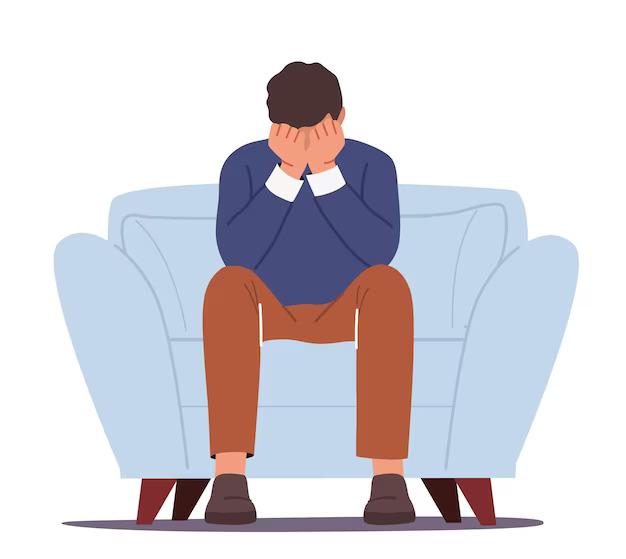
Deep sadness is a profound emotional state characterized by an intense and pervasive feeling of sorrow or unhappiness. It goes beyond the transient blues and can permeate various aspects of one’s life. Individuals experiencing deep sadness often feel a heavy emotional weight, a sense of emptiness, and may find it challenging to engage in usual activities. Coping with
Profound sorrow may involve seeking support from friends, family, or professionals, as well as exploring strategies like self-care, mindfulness, and expressing emotions through creative outlets.
What is a deep sadness in psychology?
In psychology, deep sadness refers to a profound and persistent emotional state characterized by intense feelings of sorrow, despair, or unhappiness. It goes beyond transient emotions and can impact a person’s overall mental well-being. Deep sadness is often associated with a sense of heaviness, emptiness, and a pervasive feeling of emotional distress. In clinical terms, it may be indicative of conditions such as depression.
explore the causes of Deep sadness.
Feeling deep sadness Seek support from a professional counselor through “Online counseling for stress” to help navigate and overcome the challenges. Here are exploring potential causes of deep sadness:
- Loss or Grief: The death of a loved one, the end of a relationship, or other forms of loss can lead to profound sadness.
- Trauma: Experiencing traumatic events, such as abuse or accidents, can contribute to deep emotional distress.
- Chronic Illness: Dealing with a long-term or serious health condition can lead to feelings of sadness and despair.
- Unresolved Issues: Unresolved conflicts, whether personal or professional, may contribute to a lingering sense of sadness.
- Loneliness: Prolonged feelings of isolation or lack of meaningful connections can lead to Overwhelming grief.
- Financial Struggles: Facing significant financial challenges or instability can cause emotional distress.
- Major Life Changes: Events like job loss, relocation, or major life transitions can trigger feelings of sadness.
- Disappointment: Repeated disappointments or unmet expectations can contribute to a sense of deep sadness.
- Existential Concerns: Reflecting on life’s meaning and existential questions may lead to profound emotional contemplation.
- Relationship Issues: Strained relationships, conflicts, or breakups can contribute to intense emotional pain.
- Negative Thought Patterns: Persistent negative thoughts, self-criticism, or low self-esteem can contribute to deep sadness.
- Hormonal Changes: Fluctuations in hormones, such as those during certain life stages, may impact mood and contribute to sadness.
- Lack of Fulfillment: Feeling unfulfilled in personal or professional aspects of life can lead to a pervasive sense of sadness.
Recognizing the specific causes of deep sadness is the first step toward finding effective coping mechanisms and seeking appropriate support to navigate these emotions.
What Are the Challenges of Living with Deep Sadness?
Deep sadness poses a significant challenge to mental health; connect with “Online counseling for depression” for healing and support. Here are some common challenges associated with persistent and profound sadness:
- Impaired Mental Well-Being: Intense desolation can contribute to ongoing mental health challenges, including increased risk of depression and anxiety.
- Strained Relationships: Prolonged sadness may affect relationships, causing strain due to changes in mood, communication, and emotional availability.
- Social Isolation: Individuals experiencing Extreme sorrow may withdraw from social activities, leading to feelings of loneliness and isolation.
- Decreased Productivity: The emotional weight of deep sadness can hinder one’s ability to concentrate, make decisions, and perform daily tasks efficiently.
- Impact on Physical Health: Persistent sadness can contribute to physical health issues such as fatigue, insomnia, and weakened immune function.
- Negative Thought Patterns: Overwhelming grief often involves negative thought patterns, self-criticism, and a pessimistic outlook on life.
- Lack of Motivation: Individuals may struggle with a lack of motivation and energy, making it challenging to engage in activities they once enjoyed.
- Sleep Disturbances: Consuming sorrow can disrupt sleep patterns, leading to insomnia or disturbed sleep, further impacting overall well-being.
- Difficulty Coping: Coping with daily stressors becomes more challenging, and individuals may turn to unhealthy coping mechanisms such as substance use.
- Impact on Self-Esteem: Prolonged sadness can erode self-esteem and self-worth, leading to feelings of inadequacy.
- Chronic Emotional Pain: Living with deep sadness means enduring ongoing emotional pain, which can be mentally and physically exhausting.
- Impact on Decision-Making: The emotional burden of Overwhelming grief may impair the ability to make clear and rational decisions.
- Diminished Quality of Life: Overall, Consuming sorrow can significantly diminish one’s quality of life, affecting various aspects including work, relationships, and personal fulfillment.
conclusion
Addressing deep sadness often requires seeking professional help, developing coping strategies, and fostering a support system.




